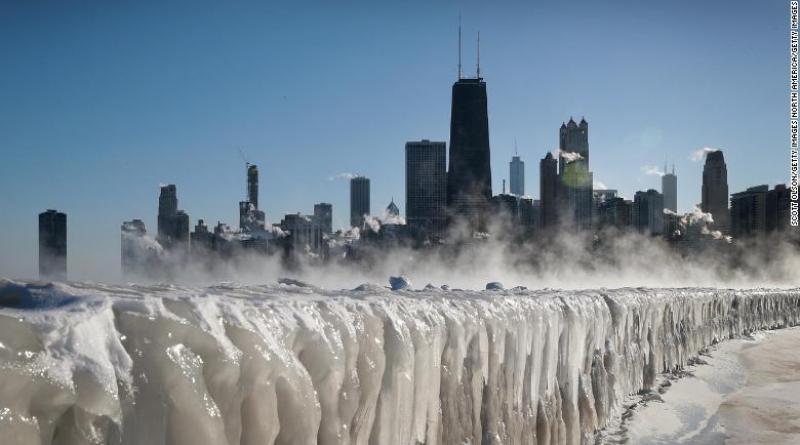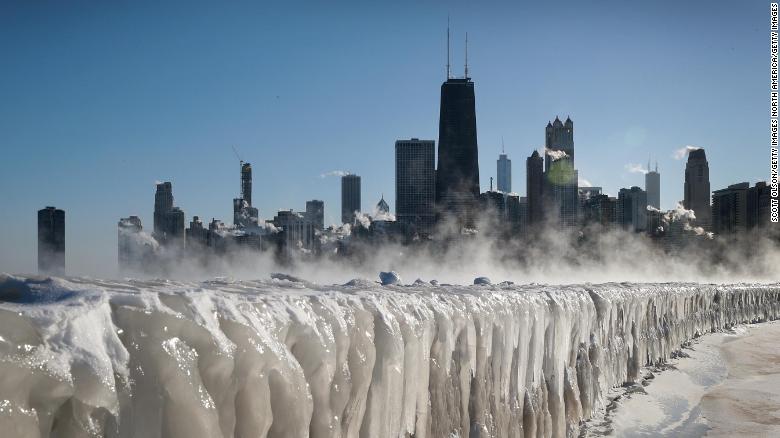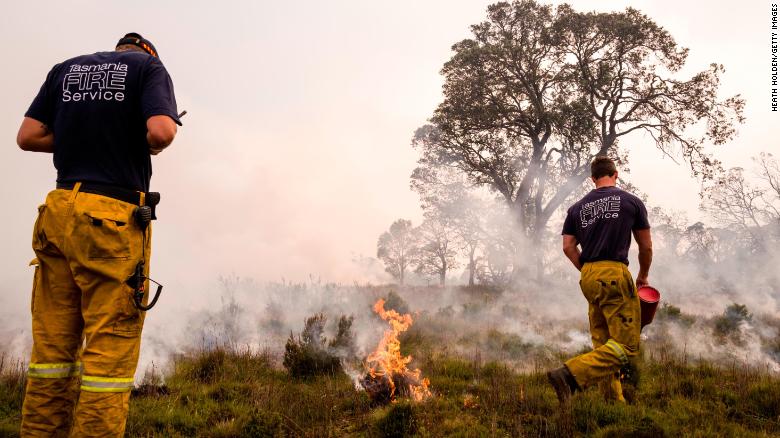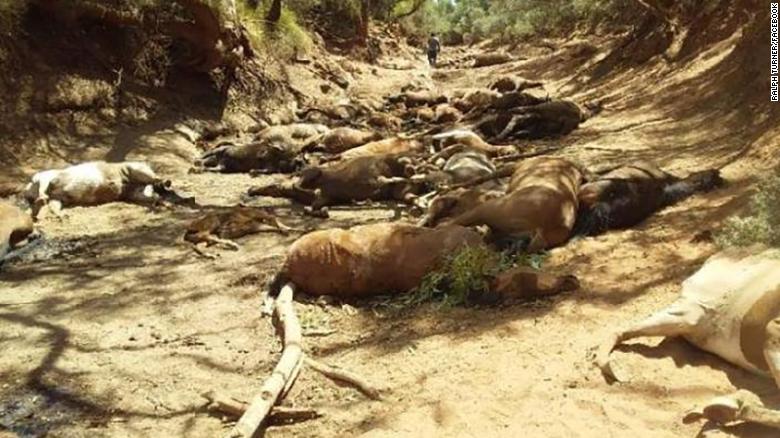Τα ακραία καιρικά φαινόμενα καταρρίπτουν όλα τα ρεκόρ παγκοσμίως.

Extreme weather shatters records around the world
US cities as cold as the Arctic. An Australian inferno. The UK covered in snow.
It's only one month into 2019 and meteorologists are already talking in superlatives as extreme weather patterns have brought cities and towns across the globe to a standstill.
In the United States this week, some 200 million Americans experienced a historic deep freeze that saw temperatures plummet below -32 degrees Celsius (-26 Fahrenheit), killed at least 23 people and led to the cancellation of more than 2,300 flights.
On Thursday, temperatures in 11 states in the continental US saw temperatures lower than the one recorded in Utqiagvik, Alaska's northernmost city, situated north of the Arctic Circle.

Authorities in some of the hardest-hit cities such as Minneapolis and Chicago implored residents to stay indoors to prevent frostbite -- in one Chicago hospital, doctors treated 50 frostbite victims; some may lose an arm or a leg.
Across the pond, the United Kingdom recorded record lows this week as frosty weather pounded parts of England, Scotland and Wales.
On Thursday, residents in Braemar in northeast Scotland experienced -14.4 C (6.1 F), according to the UK's national weather service, the Met Office. This was the lowest temperature recorded in the UK since 2012.
Heavy snow has created roadblocks for travelers across the country. Some flights at London's Heathrow Airport were canceled Friday; passengers were stuck on snow-covered runways at airports in Manchester and Liverpool earlier in the week.
Hundreds of schools across parts of England and Wales closed Friday, with the Met Office continuing to warn of treacherous driving conditions in some southern parts of the country.
In the southwestern county of Cornwall Thursday night, more than 100 motorists ended up abandoning their cars on a major highway blanketed in snow and walking to a pub, where they spent the night.
Parts of France also came under a weather warning after heavy snow fall, Météo France, the national meteorological service, warned earlier this week.
But as parts of the US and Europe saw record lows, Australia's Bureau of Meteorology announced it had been the country's hottest January on record.
The "unprecedented" heat wave that burned its way through all of the country's melted roads, saw infrastructure fail and killed thousands of animals.


In the Northern Territory, the bodies of dozens of wild horses were found strewn along a dried-up water hole. In Victoria, more than 2,000 flying foxes died from heat stress, in what local media described as a "nightmare" event. Similar mass flying fox deaths have been recorded in the states of New South Wales and Queensland.
In the southern state of Tasmania, dozens of bushfires broke out, destroying homes and wilderness as hundreds of firefighters sought to get the blazes under control.
On January 24, residents in the southern city of Adelaide experienced the hottest day on record for their city, with temperatures peaking at 46.6 C (116 F).
Throughout the country, health warnings have been issued, advising people to stay indoors during the hottest part of the day, minimize physical activity and keep hydrated.
While the current heat continues to cause problems for Australians now, scientists warn that without coordinated action on climate change, heat waves will become more likely.
"Climate change is making heat waves more likely but any individual event is effectively a weather phenomenon," Ben Webber, lecturer in climate science in the Climatic Research Unit at the UK's University of East Anglia, told CNN.
"We can try and mitigate against the worst effects of climate change by reducing carbon emissions, that's really the best thing to do -- but obviously that requires global action. So individuals can help, but it has to be a big global action to be effective," he said.
"That comes back to what politicians have been trying to agree on ... and that's why these extreme events are part of the motivation for striving to limit global mean temperatures' rise to less than 2 degrees (Celsius) or possibly to 1.5 degrees against current levels," Webber said. While we can't control the weather, he added, we can adapt to and minimize the impact that extreme weather can have on us.
That comes down to having the necessary infrastructure in place to deal with the extremes, he said.
CNN's Gianluca Mezzofiore contributed to this report.
2 February 2019
Kara Fox


